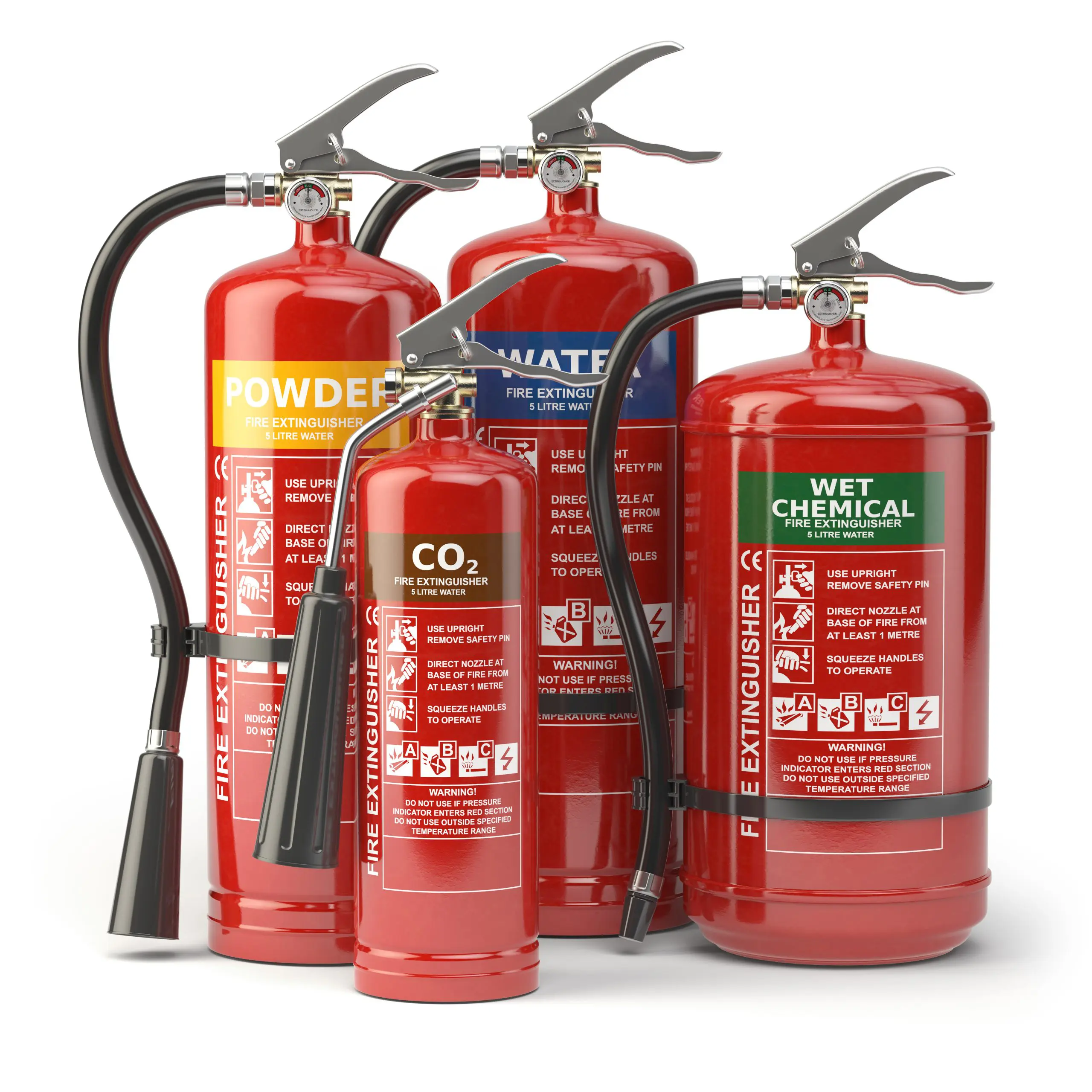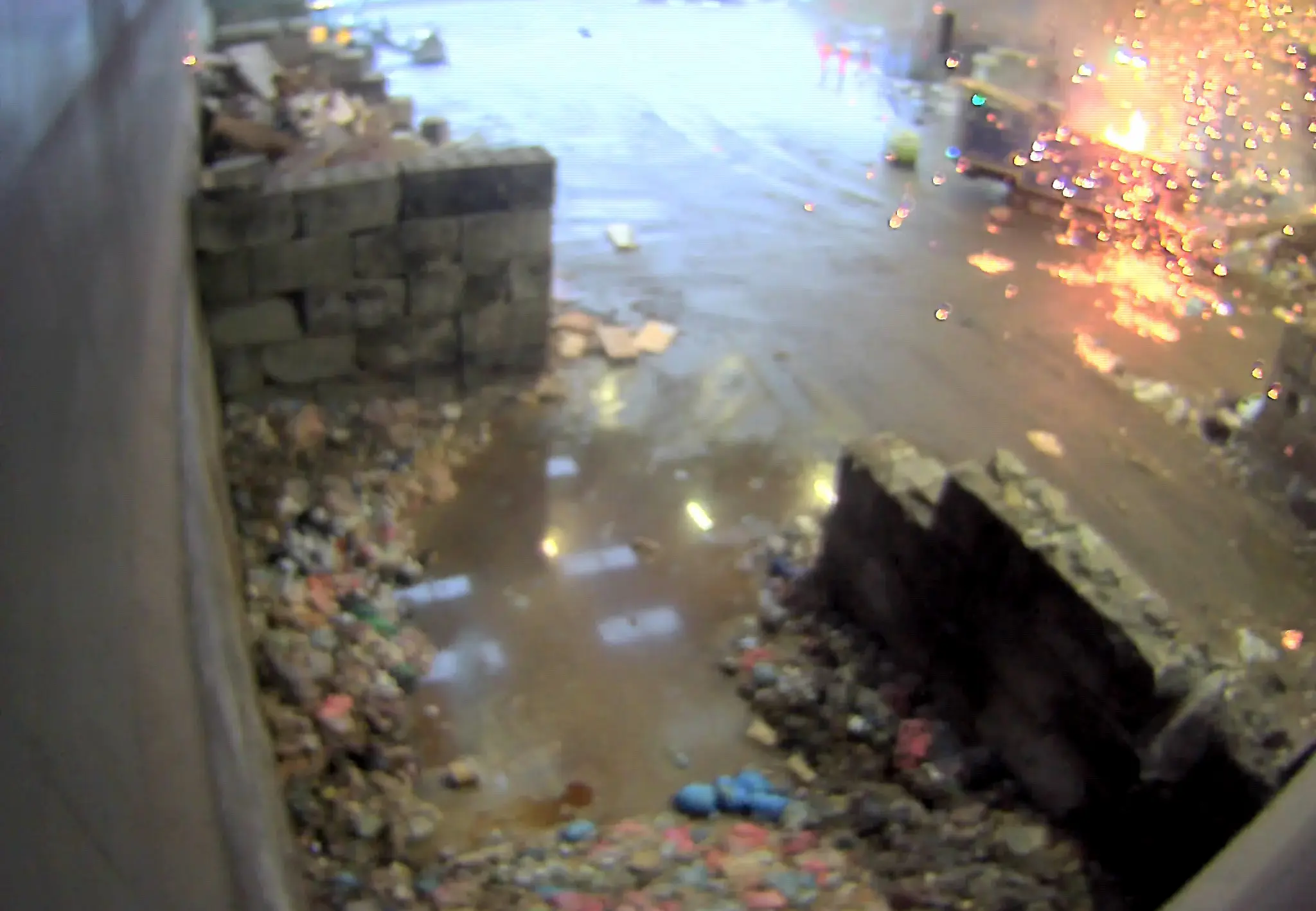There has been a rise in the number of incidents involving pressurised containers – including small gas bottles or gas cylinders typically used in patio heaters – being disposed of in general waste with potentially disastrous results.
Last summer, at one of Grundon’s Waste Transfer Stations a pressurised fire extinguisher exploded after going through a shredding machine. And although employees were quickly able to contain the situation, the incident highlighted the need for better education about safe disposal of such products.
It’s not just fire extinguishers which are to blame, other typical discarded pressurised products may include patio gas cylinders, oxygen cylinders, camping stoves or heaters, and even the small helium gas canisters used to blow up party balloons.

Fire extinguishers are not only pressurised containers they are also classed as hazardous waste and if they are disposed of incorrectly the results can be disastrous.
Typical pressurised containers
- fire extinguishers
- patio heater gas canisters
- oxygen cylinders
- camping gas canisters or stoves
- helium balloon canisters
- aerosol cans

Explosive potential of pressurised containers
Alec Powell, General Manager Resource & Recovery, says people need to think twice about just disposing of such items in general waste and be aware of what can go wrong.
“When people are replenishing their stock of fire extinguishers or purchasing a new gas bottle, they want to just throw them away,” he said. “To them, a canister or cylinder is just a piece of metal that needs to be disposed of and they don’t tend to think about the consequences.
“Whether empty or not, this is still a pressurised vessel that needs correct and careful disposal as a hazardous waste item. The fact the container is pressurised means when the pressure is released by the metal teeth of the shredder or during processing, the container can be ejected with such a tremendous force, it can literally penetrate the wall of a building and potentially may also cause a fire or explosion.
“In educating people about the dangers that can occur, we want them to understand they have a duty of care to find the correct disposal route and that includes asking for expert advice.”
Alec is however, keen to stress that this is not just a problem for Grundon and he says that across the waste industry the number of incidents involving incorrect disposal of pressurised containers is rising.
Segregation and checks
When commercial waste collections and material from Grundon’s local authority customers arrive at one of its waste transfer stations, the waste is sorted and stored in segregated bays ready for onward processing.
While some materials will be recycled on-site or bulked up and sent for specialist treatment, other items will be sent to shredding machines for processing, which is where problems can occur.
Steve Fisher, Group Materials Recovery Facilities (MRF) manager at Grundon, says: “Our transfer station team are very eagle-eyed, they visually assess the waste and the shredder operators and loaders also check it before it is loaded into the shredder.
“We do everything we can to minimise any risk and while Grundon has invested heavily in fire prevention systems for exactly this type of occasion, obviously the more we and our customers can do to prevent such incidents occurring in the first place, the better.”
Where ‘rogue’ items are spotted, Grundon makes every effort to trace where the waste came from. It has strict non-conformance procedures and uses all its powers to identify the source, which can result in a fine for the customer.
How to dispose of pressurised containers safely
If you are unsure how best to dispose of an item, call Grundon’s experts for specialist advice or check this quick self-help guide:
- LPG cylinders – can be returned to the gas company they were purchased from.
- Oxygen cylinders – as with gas bottles, these can usually be returned to the original supplier.
- Fire extinguishers – these are classed as hazardous waste so please contact a member of our technical team for advice.
- Helium gas canisters – will also be accepted by some local authority civic amenity sites but all unused gas must be released before disposal via the release valve. Manufacturers’ websites should provide instructions.
Specialist pressurised container collection and recycling
Grundon offers a specialist hazardous waste collection service and can also provide customers with a dedicated Haz-Box, which is ideal for small items of hazardous waste that shouldn’t be placed in general waste – such as small gas canisters.
It can be kept safely in a cupboard or under a counter until it is full and ready for collection and it also ensures that the appropriate paperwork will have been put in place, ensuring safe and compliant disposal.
For detailed advice on disposal of pressurised vessels, call Grundon’s expert hazardous waste team on 01491 834 340 or email hazardous@grundon.com
